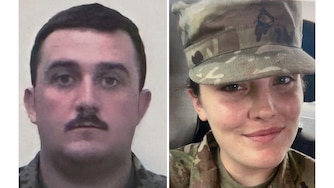The Maryland Supreme Court on Friday heard about 2 1/2 hours of legal argument over whether the names of more than a dozen people contained in a report that details decades of allegations of sexual abuse and cover-ups within the Archdiocese of Baltimore can be made public.
Until now, the litigation has largely played out under seal. It’s unclear when the justices will issue their decision.
In 2023, Maryland Attorney General Anthony Brown released the 456-page report, which alleges that 156 priests and other personnel committed “horrific and repeated abuse” of vulnerable children as church leadership turned a blind eye. The names of 46 people initially were blacked out.
Baltimore Circuit Judge Robert K. Taylor Jr. later ruled the identities of all but three of them could be disclosed.
Brown then released a revised version of the report that contained fewer redactions. Meanwhile, several people appealed the decision.
The Banner and the Baltimore Sun have unmasked several people in the report whose names remain hidden.
“This isn’t about public shaming,” Maryland Solicitor General Julia Doyle said. “It’s about understanding how this could have happened.”
But John Connolly, an attorney for 14 people who are not accused of committing abuse but named in the report, argued there should be a rule that categorically bars prosecutors from conducting an investigation, concluding they cannot bring charges and then asking the public to hold individuals accountable.
Connolly brought up a hypothetical example in which the attorney general walks onto the courthouse steps and declares, “This person is a child abuser, but I cannot charge him with it. But I have evidence. Here’s the evidence. Hold him to public account.”
“He may be right. But that’s not the way our system works,” Connolly said. “There’s probably nothing worse than being called a child abuser falsely.”
He also contended that the attorney general neither possessed the authority to conduct the investigation nor release the report.
Next, Francis Collins, an attorney who represents a man identified as Individual 147, contended that his client has never been convicted of a crime and received notice over email to defend himself against decades-old allegations.
Collins said his client then had 20 or 30 minutes to explain to a judge why his name should not be “impugned forever.”
“It was a terrifying situation for him, and it remains terrifying for him,” Collins said. “And the lack of due process was mind-blowing.”
The Sun previously identified Individual 147 as Frank Cimino Jr., who was fired from his job in 1987 at St. Thomas More and founded the Maryland State Boychoir.
Meanwhile, Ryan Steyer, an attorney represents two priests in Erie, Pennsylvania, said naming his clients did not further the stated goal of accountability.
That’s because Steyer said his clients reported a clergy member and declined to accept a transfer.
“It’s guilt by association,” Steyer said. “It’s plain and simple.”
Maryland Principal Deputy Solicitor General Joshua Segal contended that the office had the power to conduct the investigation and issue the report.
In fact, Segal argued that the office needs authorization to withhold public records.
Segal said he understood the concern about naming people who have not been charged with a crime. But the judge, he said, can properly take that factor into account.




Comments
Welcome to The Banner's subscriber-only commenting community. Please review our community guidelines.